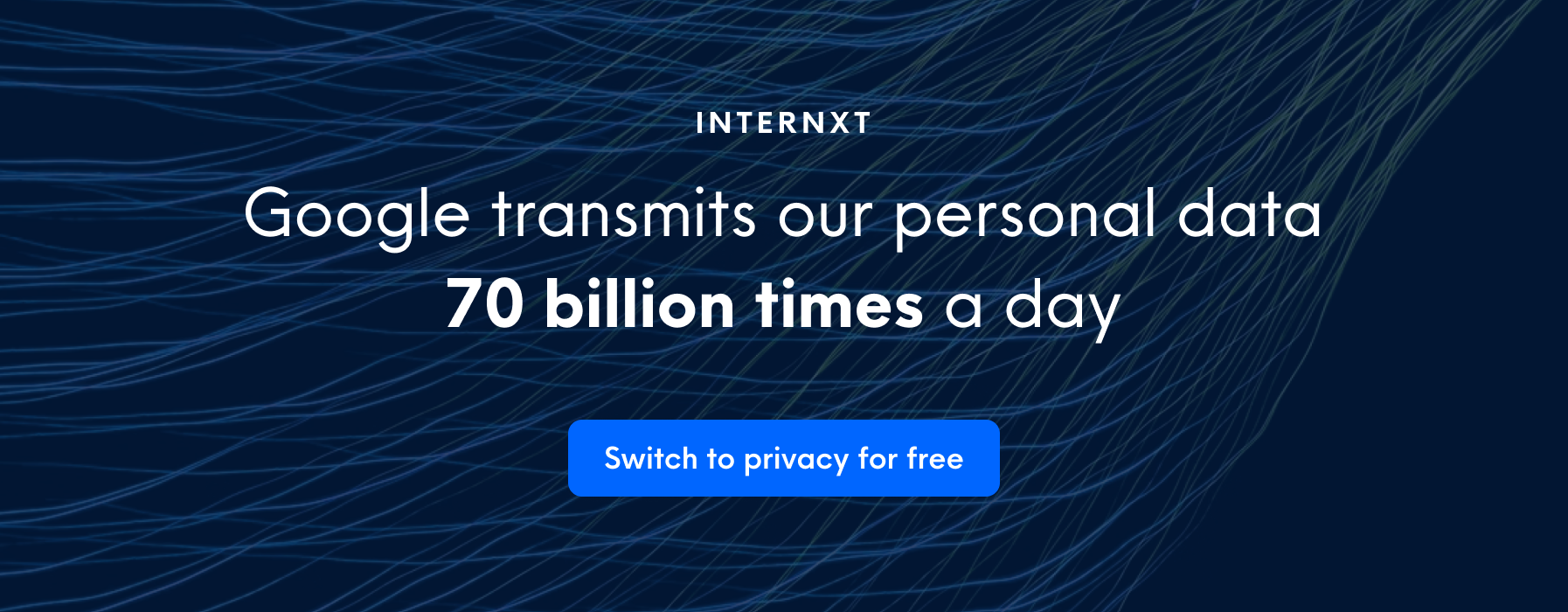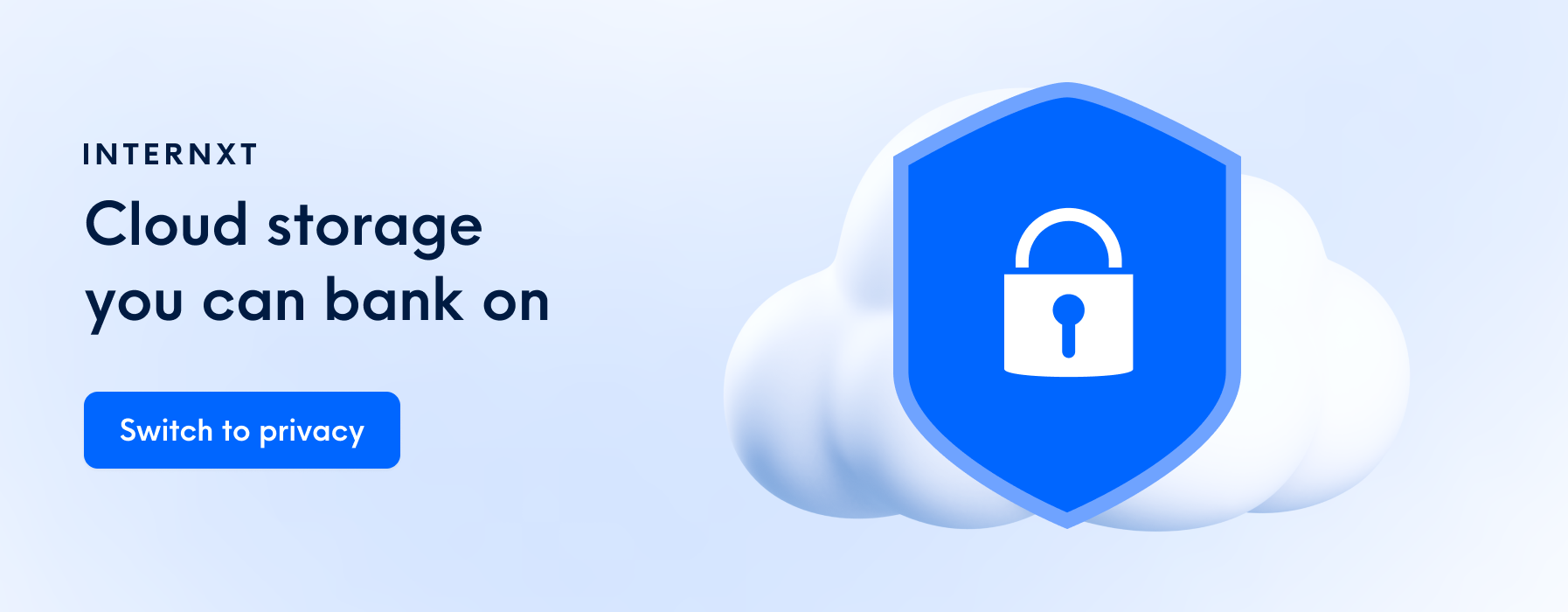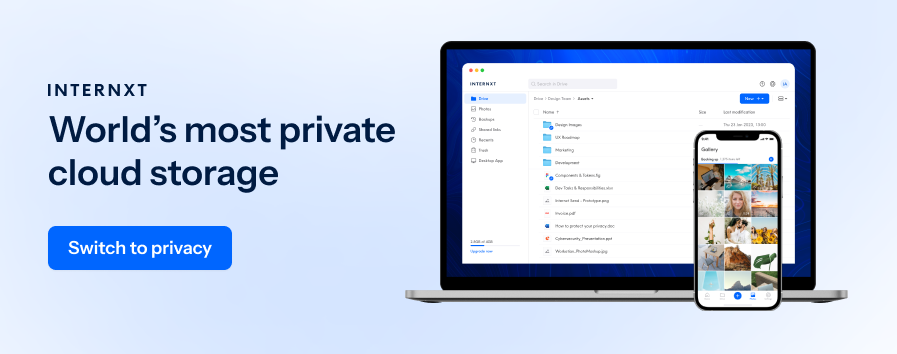13 Best Tips To Keep In Mind When Looking for a New Cloud Storage Service

Whether or not you are searching for cloud storage for your personal use or your business, utilizing cloud storage services would be one of the best decisions you could make. Cloud storage allows people to securely store data in an offsite location and enables them to easily access it from any place and device with internet connectivity.
You do not have to worry if you lose your laptop or someone steals it. All your files and documents will be in a safe place, and you will have access to them at any moment. That's why cloud storage has become the ubiquitous means of digital storage for data backups and recovery.
According to research done in 2020, the overall worth of the cloud market was $371.4 billion. The market is predicted to be valued at $832.1 billion by 2025. Not only is cloud storage massive in terms of economics, but it's also giant in sheer data size. It's estimated that over 100 zettabytes of data will be stored in the cloud by 2025.
There are thousands of options for cloud storage, and choosing the best cloud platform can be a little bit challenging. Therefore, this article has gathered some essential factors to consider when picking the best cloud storage option that meets your backup requirements and needs.
13 Factors To Help You Choose the Right Cloud Storage Service
Suppose you have previously chosen a useless cloud service that did not help you reach your business goals, like generating revenue. In that case, you might have neglected vital factors when making a choice. Below you will find tips to help you choose the best cloud storage service for your business and you.

1. Types of Cloud Services
The first key aspect to take into consideration is the type of cloud you are in the market for. For efficient cloud management, you should be familiar with your needs and wants and pick the right one.
Cloud storage functionality can be different depending on your personal goals or the nature of your business. There are three main types of cloud storage:
- Object Storage: This is a type of cloud that manages data as objects. The complete data is stored in one place, which can be distributed across different physical storage devices rather than being broken down into files or folders.
- File Storage: As you can already guess from the name, with file storage, the data is stored in files. These files are organized and placed in folders that are divided into directories, subdirectories, and other categories.
- Block Storage: This type of cloud storage allows data to be divided into blocks and placed in a system that can be distributed physically. A unique identifier for each block enables the system to track and collect them as needed.
2. Compatibility With Your Software
Check whether the cloud server is compatible with current applications and whether people can easily access data stored on it from different operating systems and web browsers used in your company.
Does your team mostly use PCs with Windows or Macs operating macOS? Maybe you use Linux-based systems? Do you work from mobile often? Then make sure your cloud offers an Android or iOS app. Do you use other hardware and devices? It pays to look and see if the cloud you have in mind works with all your hardware and the third-party applications you rely on.
3. Editing
There are some services that do not let you edit documents within cloud storage. Instead, the file must be opened outside of the storage service in order to be able to make any relevant changes.
Some cloud services provide you with both options, though. You need to identify which option best suits your business requirements and then do some research to find suitable alternatives.
For example, if you use the cloud for photos and need to view them immediately without downloading them to your device, find a cloud that lets you view your whole gallery, like Internxt. Another example could be Google Docs if you constantly need to collaborate on and edit documents. Don't settle for storage that doesn't fit your file editing and workflow needs.
4. File Sharing
Most cloud services allow you to share files with other people. For instance, you have a business and want to share some reports and other necessary documentation with your team members.
With this feature, you can instantly share files, pictures, and other things with others within a few seconds. You can securely share the custom logo design, sensitive accounting paperwork, written content, and other files.
However, there are also cloud services that do not provide you with a file-sharing option. So, be careful when searching to obtain a particular cloud service subscription plan. In this day in age, a safe and encrypted sharing feature is a must.

5. Retrieval
This feature allows you to go back to an earlier version of a document. It is pretty helpful to be able to roll back to an earlier version, especially when you have made a grave mistake. Again, not all cloud services provide you with this function.
Apple's Time Machine for iCloud is an excellent example of a robust retrieval service. Being able to go back to older versions of a file can save you a ton of time and headaches. It's wise to spend some time finding cloud providers that have this option in their subscription plans, especially if you're often clumsy or use the cloud as your primary (and only) storage.
6. Data Storing Location
The physical location of your cloud server may impact the performance and recovery of your backup. Thus, it is one of the critical factors to consider when picking the exemplary cloud service that best meets your backup needs. Especially for your creative automation process, it's crucial to have a close and secure location since you will be saving important brand data, such as your logo design or slogan.
If the cloud server is situated too far from your primary location, then your data transfer speeds to and from the cloud server may slow down. But be warned, on the other hand, if the cloud server is too close to your primary location, then your work can be disrupted in the case of natural disasters such as earthquakes. This can be disastrous to your business as you are going to lose essential data, money, and time.
Like in real estate, location can be everything. Therefore, you have to choose a location by carefully weighing the significance of data, costs, the importance of speed, and possible unforeseen environmental challenges.
7. Backup and Recovery
When it comes to assessing and comparing cloud storage systems, data backup and recovery are also important factors to focus on. Many cloud storage providers enable users to restore files from a previous one in the case of interruptions. This might be needed when users accidentally delete files, when data is compromised due to a cyberattack, or data is lost in a natural disaster.
Choose a cloud storage provider that saves all lost or deleted files for at least one month and allows users to restore files from anywhere during that period. If you or your business needs to gain access to lost or deleted files from as far back as one year or more, there are many cloud storage solutions that also meet those needs.
With this feature, if you store long-term customer data, you can be sure you always have it for use for email newsletters, SMS marketing campaigns, social media, sales, and other campaigns and that it is stored safely and protected from emergencies.
Many cloud providers allow you to decide how often and when your backups occur, so it would be smart to double-check what options the backup plan offers. You may want to explore a continuous backup option to reduce data loss risks if you constantly create new files.
Moreover, check if old copies of files are automatically overwritten once you run out of your storage. Lastly, you should pay attention to how the cloud service secures your backups. More specifically, find out whether servers are regularly scanned for malicious activity and hardware failures or not.
8. Security
According to recent research, global cyberattacks increased by 32% in the second quarter of 2022 compared to the previous year. This number will likely increase if businesses and individuals do not take the necessary security measures.
Security is a significant concern when it comes to choosing a cloud service. Whether you want cloud storage for your personal use or your business, you should thoroughly assess each cloud service provider's security features designed to protect data from cyberattacks and other security threats.
You should also take time to decide how the information will be transferred and stored on the cloud server, who can access that data, and what security features the service provider offers that you wish to enable. Choose a service provider that provides encrypted transferring, storing data in encrypted form, and offers two-factor authentication for logins, so attackers cannot access your sensitive data.

9. Integration With Other Applications
Before choosing specific cloud storage, make sure it can integrate with other software programs and applications you employ. Ensure that your cloud service offers APIs or programs to integrate your cloud with other software applications.
This is important as it allows you to transfer files or folders from one cloud drive to another without wasting time and effort. There is no need to waste your precious work hours downloading files to your computer just to then upload them to the cloud.
Also, if you have chosen a free cloud storage service and have already run out of memory, you must obtain a paid subscription to get more storage. To avoid additional expenses, combining different clouds into one with a larger storage space would be better.
10. Cost
Cost is another key factor to take into account when choosing a cloud service. Luckily, many cloud storage services provide free cloud storage, enabling you to understand if it is right for you before you switch to a paid subscription plan.
In this way, you can test several cloud services and pick the best one. For small and local businesses, this is a valuable opportunity to store data securely and cut expenses on it. Let's say you run a moving company. You can compare different popular cloud storage providers and pick the best one without eating up your gas budget.
While assessing and comparing the storage costs of different cloud services, you should pay attention to critical factors such as the number of users, the capacity of storage, features of a specific subscription plan, prices per upload or download, and any other costs related to the service.
Choose a cloud provider that is flexible and allows you to add or remove services based on your business requirements. Also, to save a little extra money, keep your eyes peeled for companies offering cloud storage services that put money into building a referral program and offer discounts to encourage users to adopt their service. You can find inspiration by exploring a list of referral program examples. If you have a referral code, make sure to use it to maximize your savings.
11. Performance
The ability to monitor cloud performance is crucial to efficiently allocating cloud resources and ensuring that everything works smoothly. When assessing your cloud performance, pay attention to metrics such as time to time as well as the other metrics listed below:
- Time to First Byte: TTFB is a metric measuring your server's responsiveness to website users' browser requests. It estimates how long it takes for a visit to arrive at a web page and for the server to recognize it. This is crucial because the time it takes for the browser to get its first byte of data from the server affects how fast the page loads.
- Input/Output Operations Per Second: This metric enables the measurement of how many input/output operations a storage device can implement within a second.
- Caching: Caching optimizes storage access performance. Consider using RAM to optimize cache access rate, as it's considerably faster than disk read operations. Whenever your file system needs data, the cache will read it and avoid extended disk read operations. To ensure your disk performs efficiently, you need to find the best caching solutions to implement the process and improve performance.
- Autoscaling: Autoscaling or auto-provisioning is the cloud platform's ability to increase or decrease cloud services to meet the demands of a workload. This makes your cloud service much more flexible and capable of more effectively juggling multiple tasks.
12. Anywhere Access
With the COVID-19 pandemic, many businesses switched to remote or hybrid working. As many employees now work from home, it's helpful that users be able to access a file from anywhere.
Cloud storage systems that provide anywhere access with mobile applications enable users to work on various files, such as process documentation or financial documents, from different devices, including computers, mobile phones, and tablets. Being able to work from where you want or on the go is a big incentive to offer prospective employers.
This feature also makes your business, as a whole, more flexible and prepared for change. It's a fact that the more agile and equipped your company or team is for unforeseen events, the better off you will all be in the long run.
13. Technical Support
Sometimes, you may face problems with even the most modern technologies. When problems arise, you should be able to reach out to your cloud provider to receive proper assistance at a moment's notice. Before choosing a cloud storage provider, do some research and find out how they implement technical support.
A good provider clarifies when they are available and how you can reach out to them. It is also helpful to find out how fast they respond to a problem so you can schedule around mishaps. To do so, consider using a desktop time tracker to measure how long this process lasts. If it takes a few days for them to reply, your business may be adversely affected.
Despite the fact that you have thousands of options for tech support providers, you will be able to make the right decision by taking the above-discussed considerations into account. Once you have decided who will provide you with the best tech support, you'll reap all the benefits cloud storage has to offer.

Final Thoughts on Picking a New Cloud Storage Service
Most business owners concentrate on growing their companies, and many business decisions are based on this one and only motivation. Cloud computing is one of the most easily implemented tools that could get business owners closer to reaching their goals.
As we have already discussed, the cloud provides companies with more agility, requires lower operating costs, and leads to more productive work. However, despite all those advantages, some businesses find it challenging to settle on cloud storage that's right for them. In many cases, the problem is whether a particular cloud provider fits the company's needs and requirements.
We hope you found our article helpful, and when finally deciding who will manage your cloud storage, you now have all the above-discussed key factors to help you pick the best out of the many available options.

